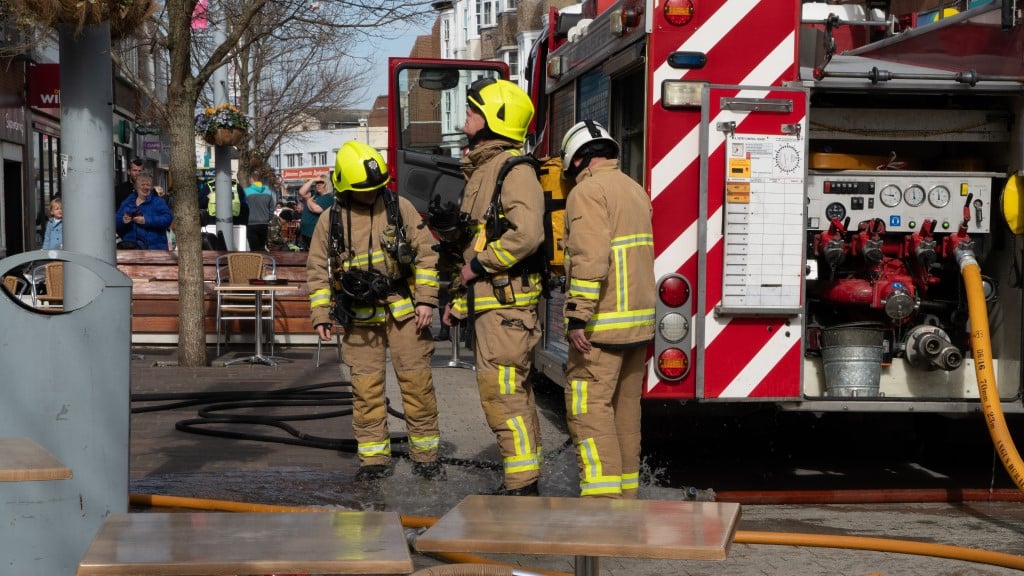UK Government responds to fire reform White Paper and Consultation
- December 13, 2023
- 10:26 am


Iain Hoey
Share this content
The UK Government has officially released its response to the fire reform White Paper and consultation, marking a significant step in reforming fire and rescue services across the nation.
Government’s comprehensive response to fire service reforms
On 12 December 2023, Chris Philp, Minister of State for Crime, Policing and Fire, presented the government’s response to the consultation on the fire reform White Paper titled “Reforming Our Fire and Rescue Service” (CP 670).
The original White Paper, introduced last year, aimed to gather public and sector feedback on proposed reforms, taking into account lessons from the COVID-19 pandemic, recommendations from independent inspections, and insights from the Grenfell Tower Inquiry.
Addressing challenges and misconduct in fire services
The period following the White Paper’s publication has seen heightened focus on challenges within the fire sector, notably through an independent review of culture in the London Fire Brigade and a national spotlight report by HMICFRS.
These reviews shed light on misconduct and unacceptable behaviours in multiple fire and rescue services.
The government’s response aims to tackle these issues head-on, proposing a set of reforms focused on public impact and professional development.
Key reforms and future directions
The government’s reform package includes several key initiatives:
- Establishment of a professional College of Fire & Rescue to elevate standards and leadership.
- Operational independence for fire chiefs.
- Review of pay negotiation mechanisms by the National Joint Council.
- Efforts to enhance integrity and culture, including improved training, open recruitment, and a potential statutory code of ethics for fire and rescue employees.
Chris Philp emphasised the government’s commitment to supporting fire and rescue professionals as they adapt to a changing world and strive to enhance their capabilities.
He extended gratitude to all who contributed to shaping the proposals and providing feedback, highlighting the collective effort in driving necessary reforms.
The response has been documented in a Command Paper (CP 993) and is accessible on the government’s official website.
FBU stance
The Fire Brigades Union (FBU) has voiced strong opposition to the UK Government’s latest fire service reform plans.
Matt Wrack, the FBU General Secretary, condemned the proposals as “dangerous and ill-conceived.” He highlighted the ongoing crisis in the fire and rescue service, noting a significant reduction in frontline firefighter jobs since 2010 and slower response times.
Wrack criticised the government’s failure to address these issues directly in the new proposals, stating that they neither reinvest in the fire service nor set national standards for response times and crewing.
Wrack expressed concern over the government’s plans to weaken collective bargaining and merge police and fire governance structures.
He accused the government of attempting to empower Chief Fire Officers at the expense of democratic accountability, local communities, and firefighters themselves.
The FBU General Secretary also criticised the proposals for attacking the National Joint Council and pay agreements without sufficient evidence.
Wrack reaffirmed the FBU’s commitment to opposing cuts to the fire service and any attempts to sideline firefighters’ voices.
NFCC stance
In contrast to the FBU’s stance, the National Fire Chiefs Council (NFCC) welcomed the government’s response to the Fire Reform White Paper.
Mark Hardingham, Chair of the NFCC, praised the headline plans for investment and reform, emphasising the need for continued improvement in fire and rescue services.
He recognised the dedication of fire and rescue service personnel, including firefighters, 999 control operators, and those involved in prevention and protection services.
Hardingham welcomed the announcement of a statutory code of ethics, viewing it as a continuation of the NFCC’s efforts to improve organisational culture and workforce diversity.
He also supported the decision to grant operational independence to Chief Fire Officers, clarifying their responsibilities in relation to Fire and Rescue Authorities.
The NFCC Chair acknowledged the need for long-term investment to support these reforms and other improvements.
Hardingham reiterated the NFCC’s commitment to ensuring fire and rescue services are equipped to meet current and future challenges and maintain the high levels of public trust and confidence.
About the Fire Reform White Paper
The Fire Reform White Paper, officially titled “Reforming Our Fire and Rescue Service” (CP 670), was a government initiative aimed at overhauling the UK’s fire and rescue services.
Inspired by lessons from the COVID-19 pandemic, independent inspection findings, and the Grenfell Tower Inquiry, the White Paper sought to modernise the fire service, addressing both operational and cultural aspects.
Its consultation process involved input from various stakeholders, including fire professionals and the public, culminating in a set of reforms designed to improve service standards, integrity, and public trust.

